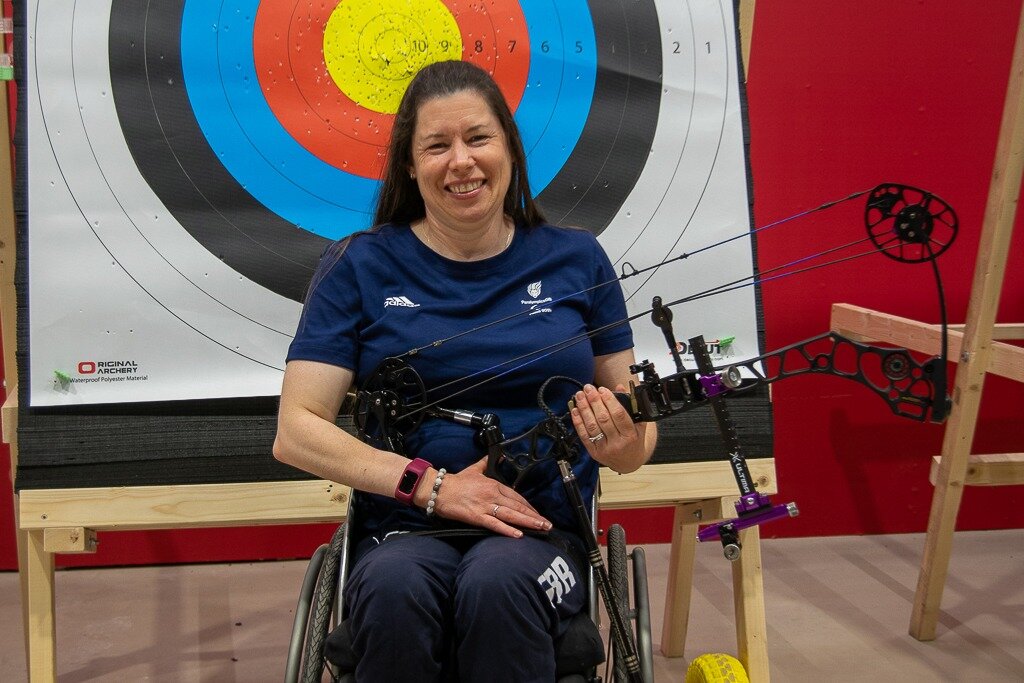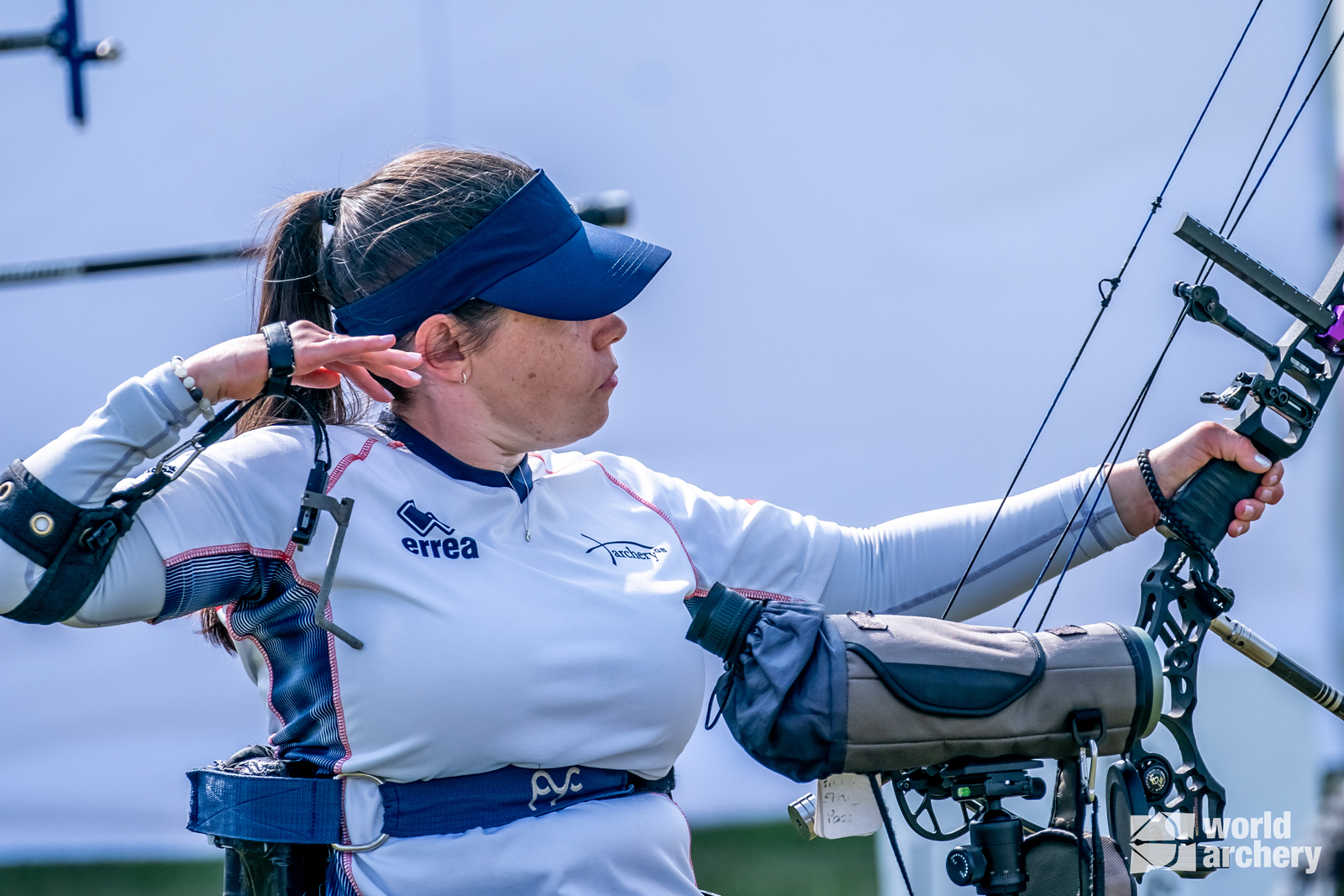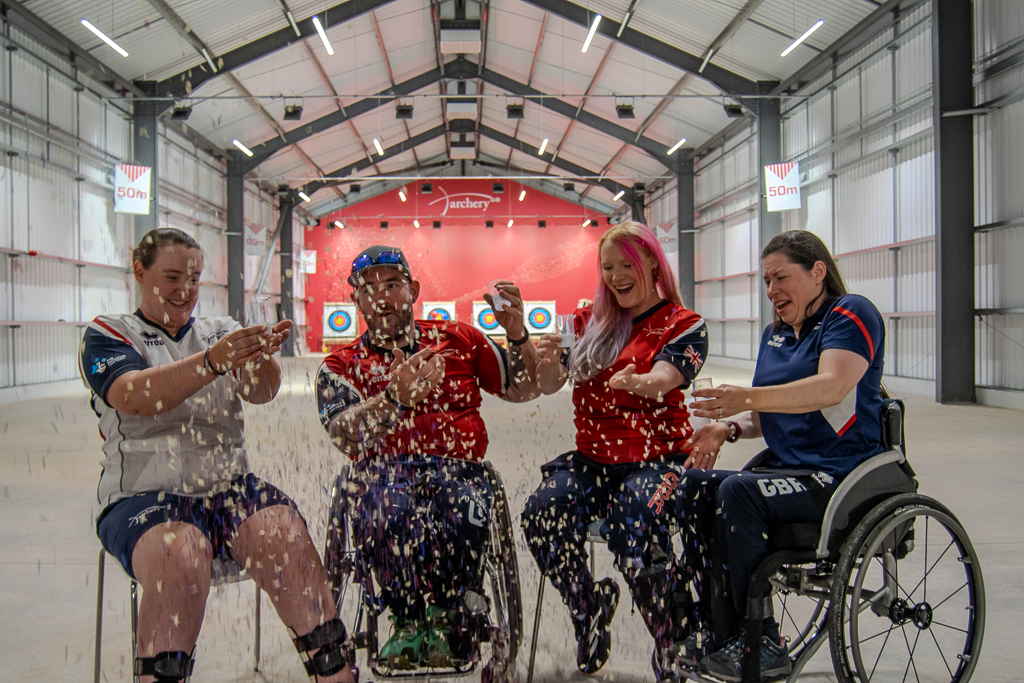Representing GB in archery at the Paris 2024 Paralympic Games, Victoria Kingstone shares her inspiring story of how sport transformed her life. Once a PE-avoiding student, she discovered wheelchair basketball in university, igniting a passion that led her to archery. She delves into her training regime, the mental fortitude required to compete at the highest level, and her advice for anyone considering taking up archery.

I don’t come from a sporting family, and as a child in the 80s and 90s, PE lessons were not exactly inclusive, so I did not get into sport until university, when I found wheelchair basketball. I could never have imagined the role sport would play in my life over the past 20 years, from the friends I have made and skills I have learnt, to the memories shared and experiences I have been part of.
As someone who was proud to do their PE lessons sat in the library, who’d have guessed I would now spend my life involved in sport, both for fun and as a living.
I train five to six days a week, four of which are at the Performance Archery Centre in Lilleshall, the rest at my club, Guildford Archery Club. A typical day includes some technical work, a scored round, a gym session and meetings with our various support practitioners, all working to help get the best out of me.
Shoulders are definitely the body part that suffers the most, both directly through the force and movement of drawing a bow, but also as a wheelchair user, I am entirely reliant on my arms for moving and lifting my body.
It’s important to have an outlet outside of sport, for days when things don’t quite go to plan. For me, it’s about being at home with my husband and cats, remembering that they don’t care whether I’ve won or not.

Archery events can be set up pretty much anywhere there is a long enough piece of ground, which has led to some unusual settings. At my first finals event, we were in a town square in Germany shooting across ornamental fountains. In the middle of a match some ducks flew into the water! At another event, my teammates were shooting while a cruise-liner was coming into dock right behind the targets.
During lockdown, like everyone, our lives and routines changed. I went from shooting 50m in a field, to using a resistance band. My coach, mixed team partner and I would even practice our mixed-team round over video call which was always amusing.
I would say the toughest thing is knowing when to stop. We all have an image of the athlete who trains on Christmas day because she knows her competitor isn’t, but rest and recovery are critical to avoid injury, illness, and burnout. It’s still a lesson I’m reluctantly learning.
You might have an image of Robin Hood in mind when you think of archery, but it really is the most versatile and inclusive sport. I simply love that you can turn up at a club and there will be parents learning to shoot with their children, people with physical or visual impairments, even an Olympian or Paralympian, all sharing the same shooting line.
So, whether you are 8 or 80, want to shoot at a target, 3D animal or even try run archery, there is a bowstyle, discipline and club for you. Just take a look at Archery GB’s Start Archery website.
